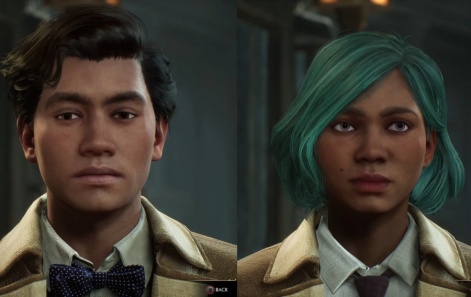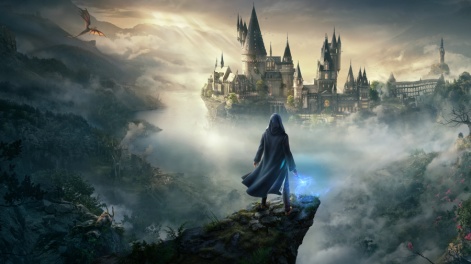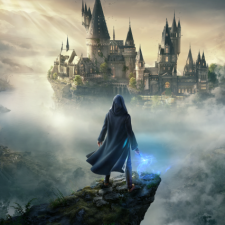Next week sees the release of Hogwarts Legacy, the much-anticipated game based on the Harry Potter franchise. However, the game has been mired in controversy for some time, largely due to one factor: series creator JK Rowling, who has become well known for her controversial opinions regarding the transgendered community. While the game is forecast to be a worldwide bestseller, consumers worldwide are calling for boycotts of the title, or at least advocating the use of other methods of playing the game, including illegal ones such as piracy, or else donating to a trans charity alongside (or instead of) purchasing it.
At present, there are two games in the franchise available on global app stores (Puzzles and Spells and Hogwarts Mystery), with another (Magic Awakened) available in China, with a global release planned. The franchise still makes a lot of money, but when should developers step back?
A victim of its own creator
To be clear, Rowling has no direct involvement in the development of the games. Some would even say that once a story is embraced by the public, it becomes less about the author’s intent and more about what the public sees in the universe. In some cases, fan support or outcry has led to in-universe effects, whether that’s an unexpected renewal of a series, more cosmetics for a popular character in-game, or even jokes or nods to popular memes and theories. Fans have the power to directly affect a piece of media, as long as the creators are open to it.

As arguably the highest-profile game in the franchise’s history, with a cast of established actors and a high development cost, Hogwarts Legacy developer Avalanche and publisher Warner Bros. Games have taken steps to address concerns by working with LGBTQ+ rights organisation GLAAD and even including trans-inclusive character creation. However, the fact remains that Rowling was paid for the licence for these games and many fans, even die-hard Potterheads, are unwilling to buy the game due to their fears of enriching Rowling.
While the developers are doing what they can, it appears that as Rowling moves from 'asset' to 'liability' they’re not doing enough to satisfy some consumers.
Society is changing – should games, too?
The world is growing increasingly liberal with each successive generation, and consumers are becoming increasingly aware of social matters, and deciding where they spend their money. Many of us grew up on the franchise, but feel we cannot ethically purchase the game directly, whether we’re members of the trans community or simply allies. As such, at a certain point it becomes prudent for developers to either abandon a franchise entirely, or for creators to consider selling the rights, separating the art from the artist in the most literal sense.
Regardless of the popularity of games based on the franchise – and these games remain popular, regardless of platform – at a certain point reality becomes liability as consumers worldwide grow more concerned with who they’re funding and how they affect others.
Ultimately, boycotts and bad reviews risk harming a game, and significant controversy lingers. The HBO adaptation of The Last of Us is currently dominating online discussions, however many people still take to forums to criticise the storyline of the second game almost three years later, and this is likely to be reignited once the series catches up with the game. Notably, the third episode, entitled Long Long Time, has been cited as a series highlight for many critics, but currently sits at a series low of 8.3 on IMDB. The episode, composed mainly of an extended flashback, focuses on a love story between two men, which, to some, has caused offence.

In short, fans of a franchise will make their voices heard, regardless of their opinion, and at a certain point developers and publishers need to consider who their games are for. Do they want to focus on appeasing a contingent of fans who will protest “wokeness”, or the growing population who are concerned about issues such as diversity and inclusion?
Evolving cultures
The assumption is to say that the world is becoming more diverse, but that’s not necessarily the case. It’s unlikely that there are more LGBTQ+ people than there were fifty years ago, however the evolving culture means that more people are open about it, and in the coming years developers will need to make smart decisions about how they want to be perceived by the public – and creators will need to decide whether or not they care more about their work or their persona. Games based on works by controversial creators are likely to see diminishing returns of success, regardless of their quality, and as such may eventually fall out of vogue entirely. Perhaps, at a certain point, the only way for creators to salvage their work is to step away entirely.
Arguably, nothing Avalanche could have done would have been capable of fully addressing the concerns of those offended by Rowling’s opinions and her willingness to share them, but at the same time the calls for boycotts have done little to kill anticipation. I don’t think this is a black and white issue, but it has become an emotive one for a lot of people, and as such people are reacting emotionally. Going forward, developers should take note of the ongoing controversy, and decide not just whether or not creating a game is viable, but what they can do to fully address the concerns of marginalised communities.






















